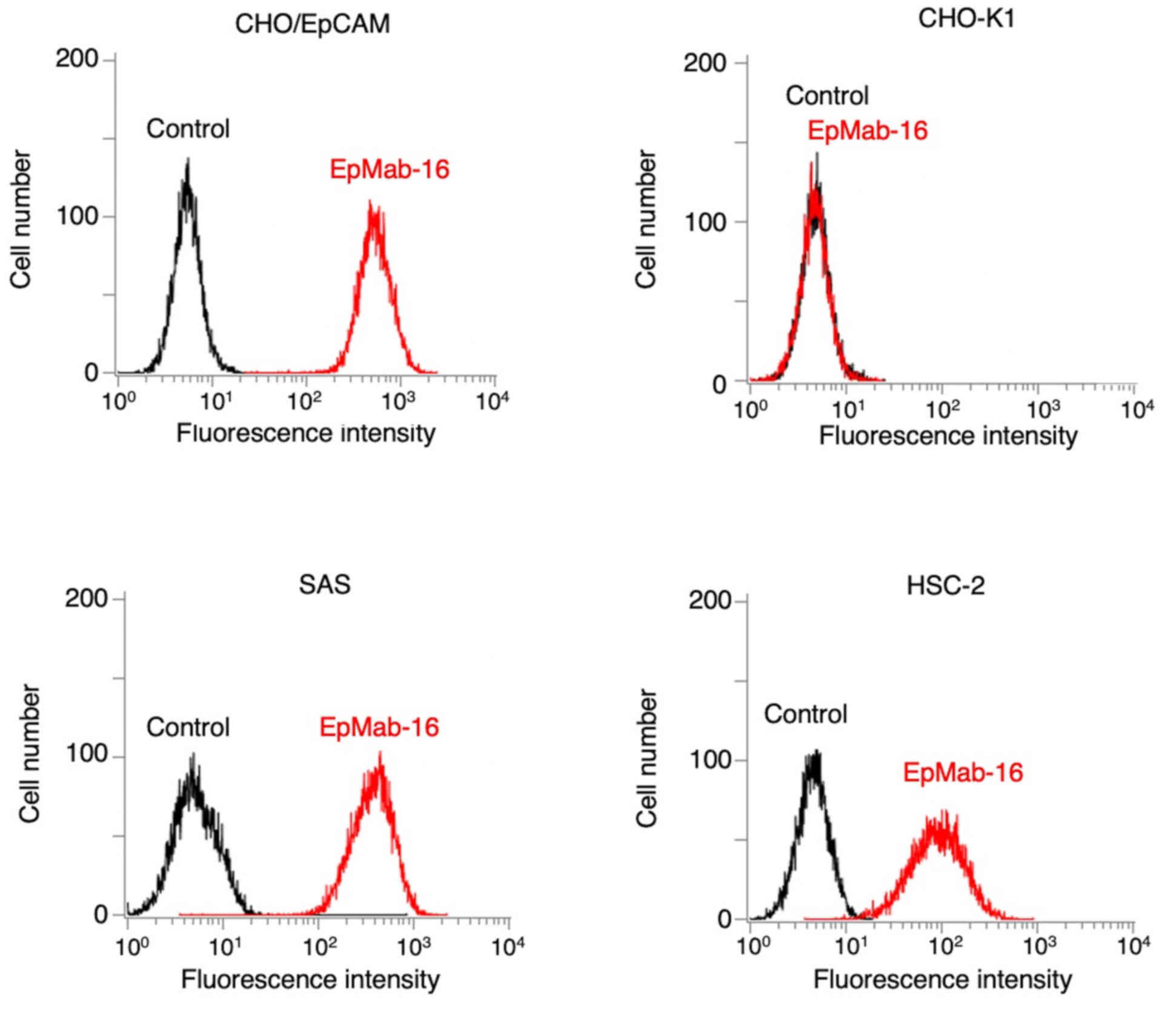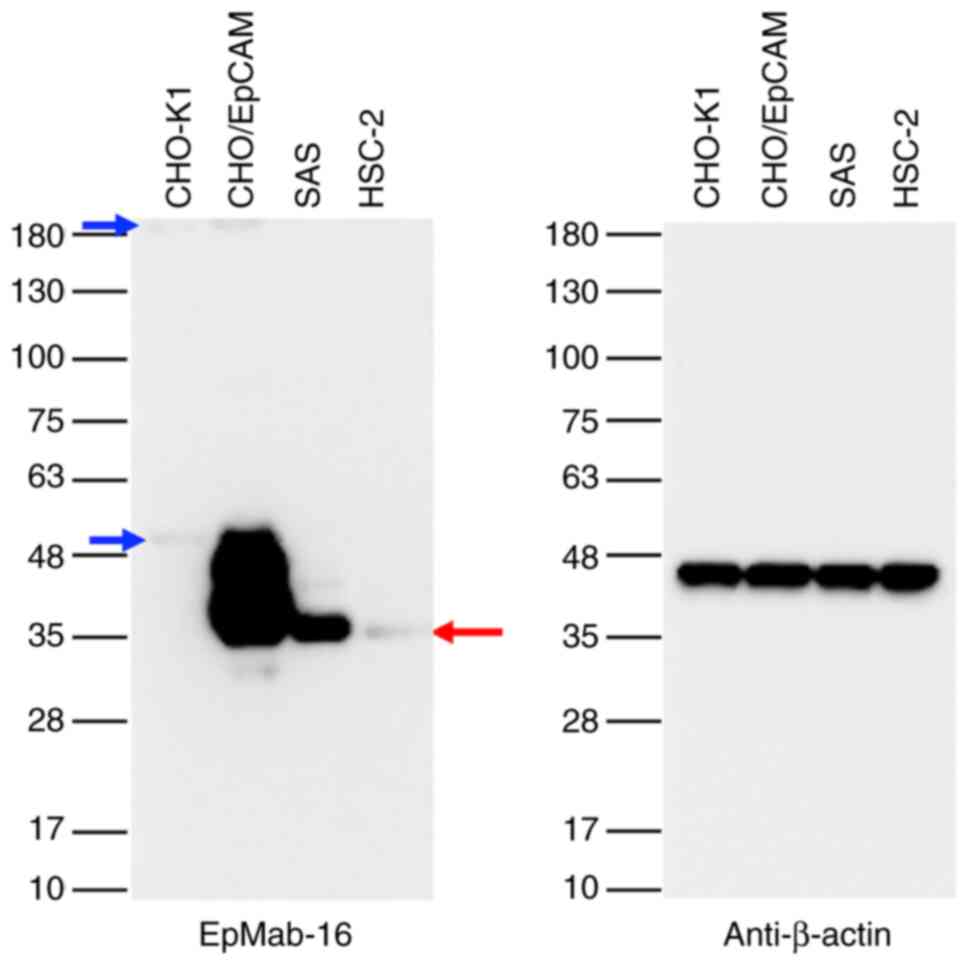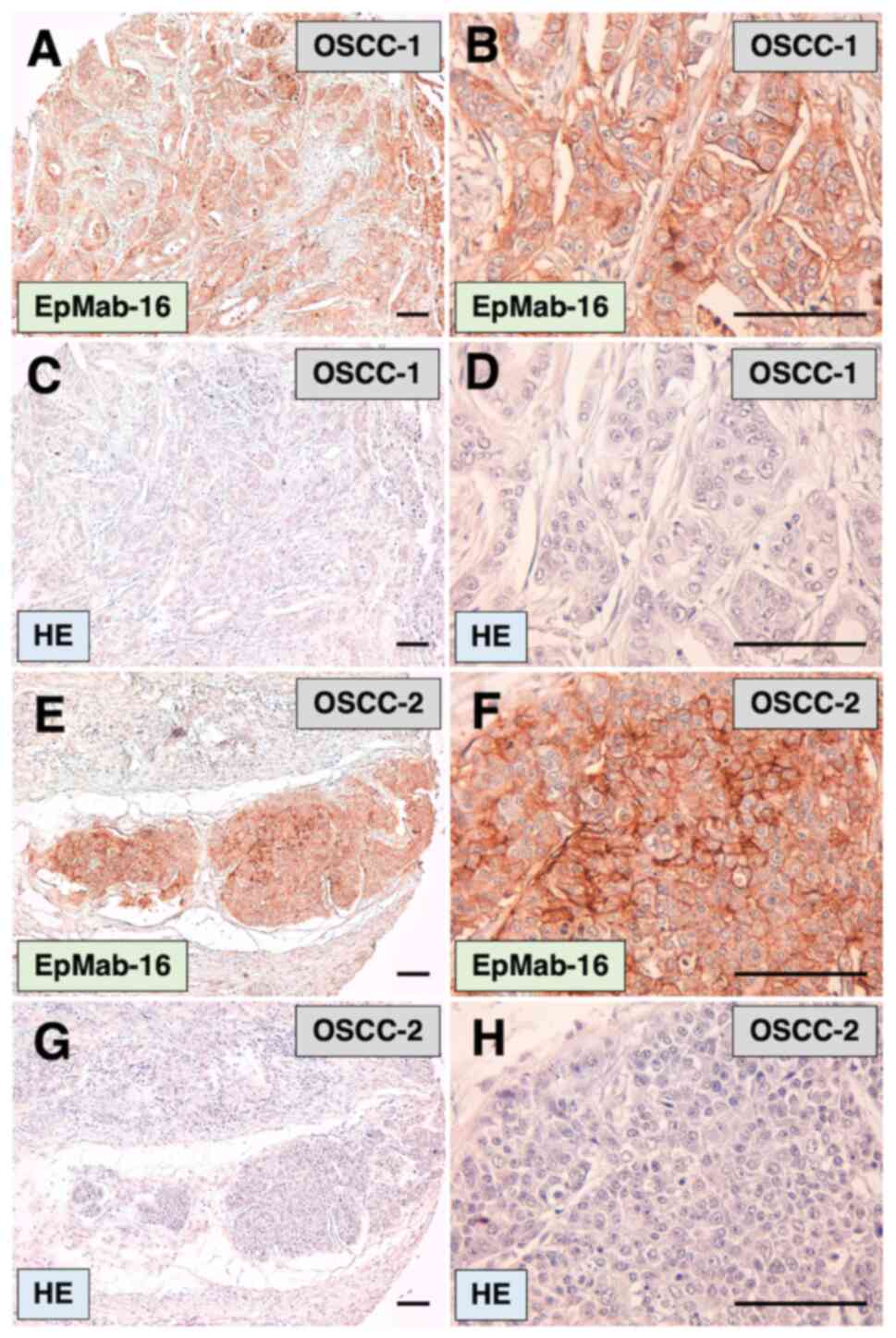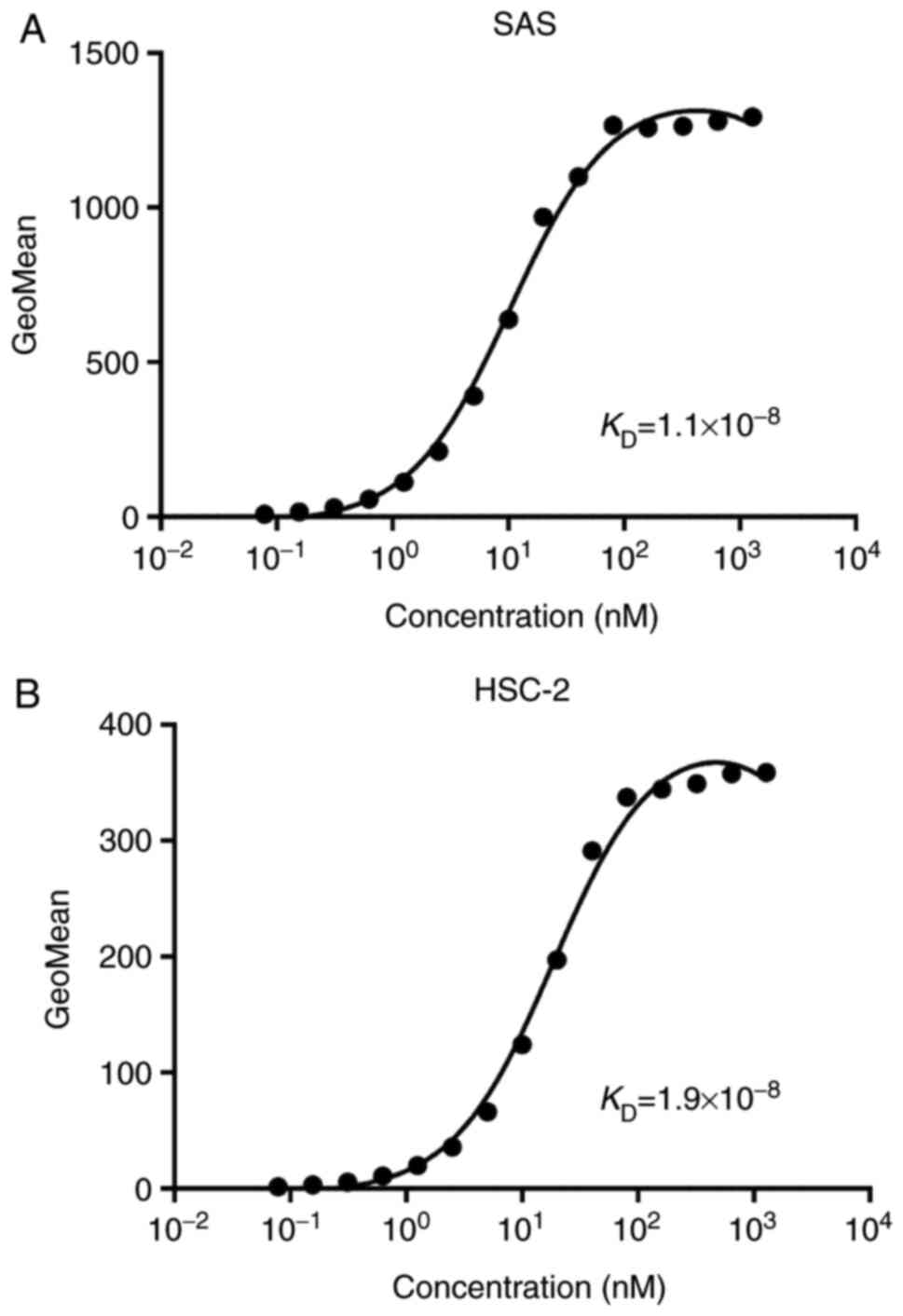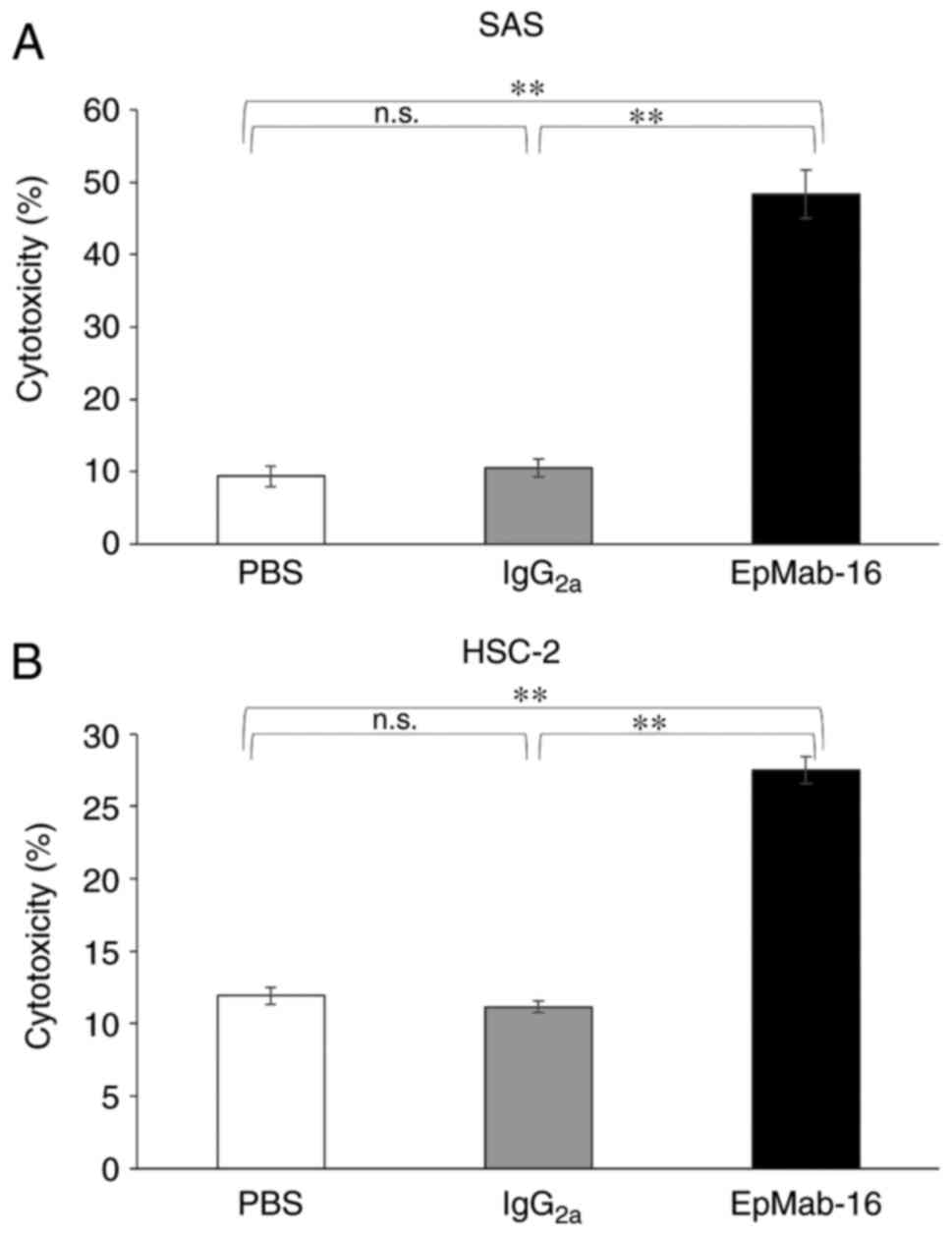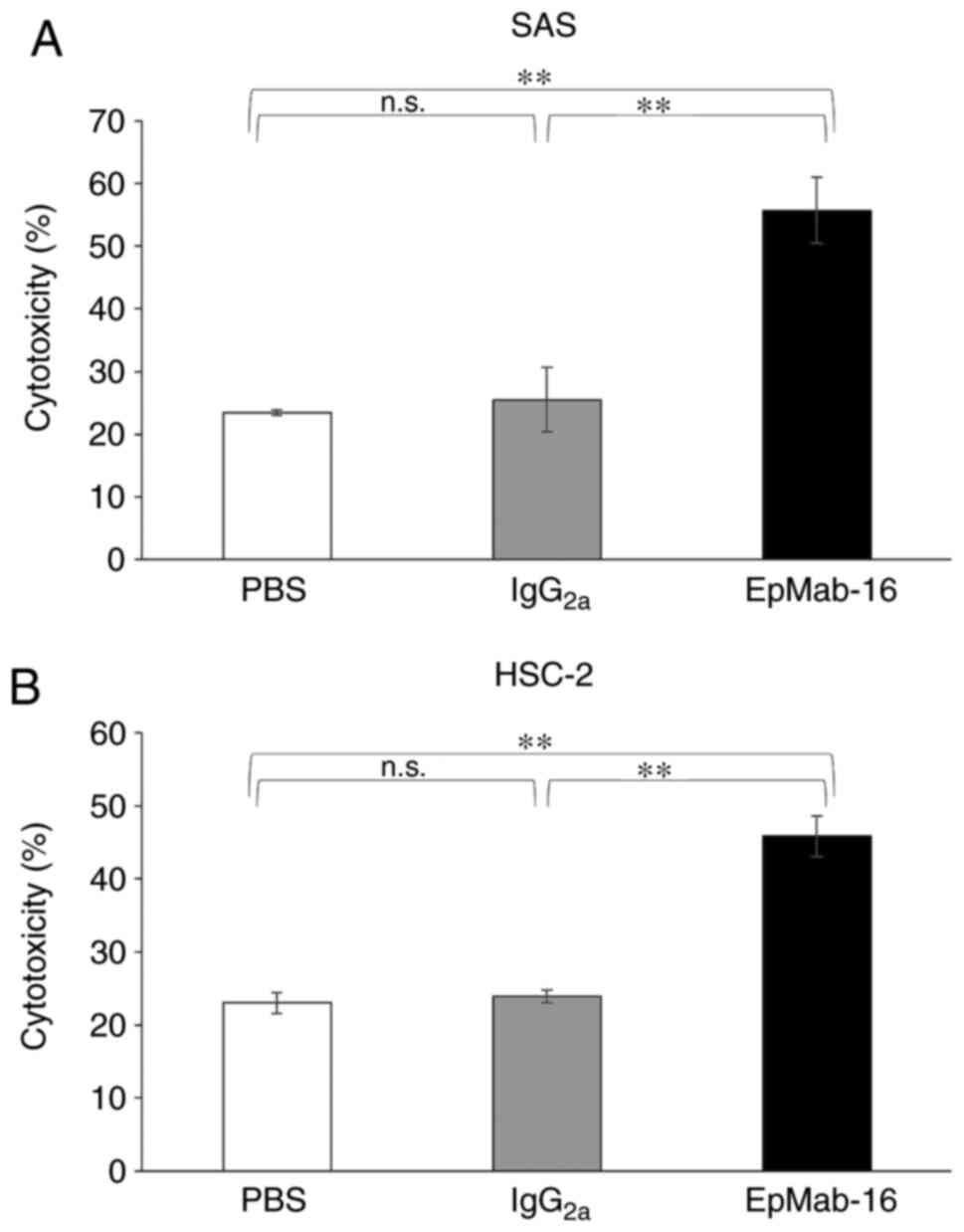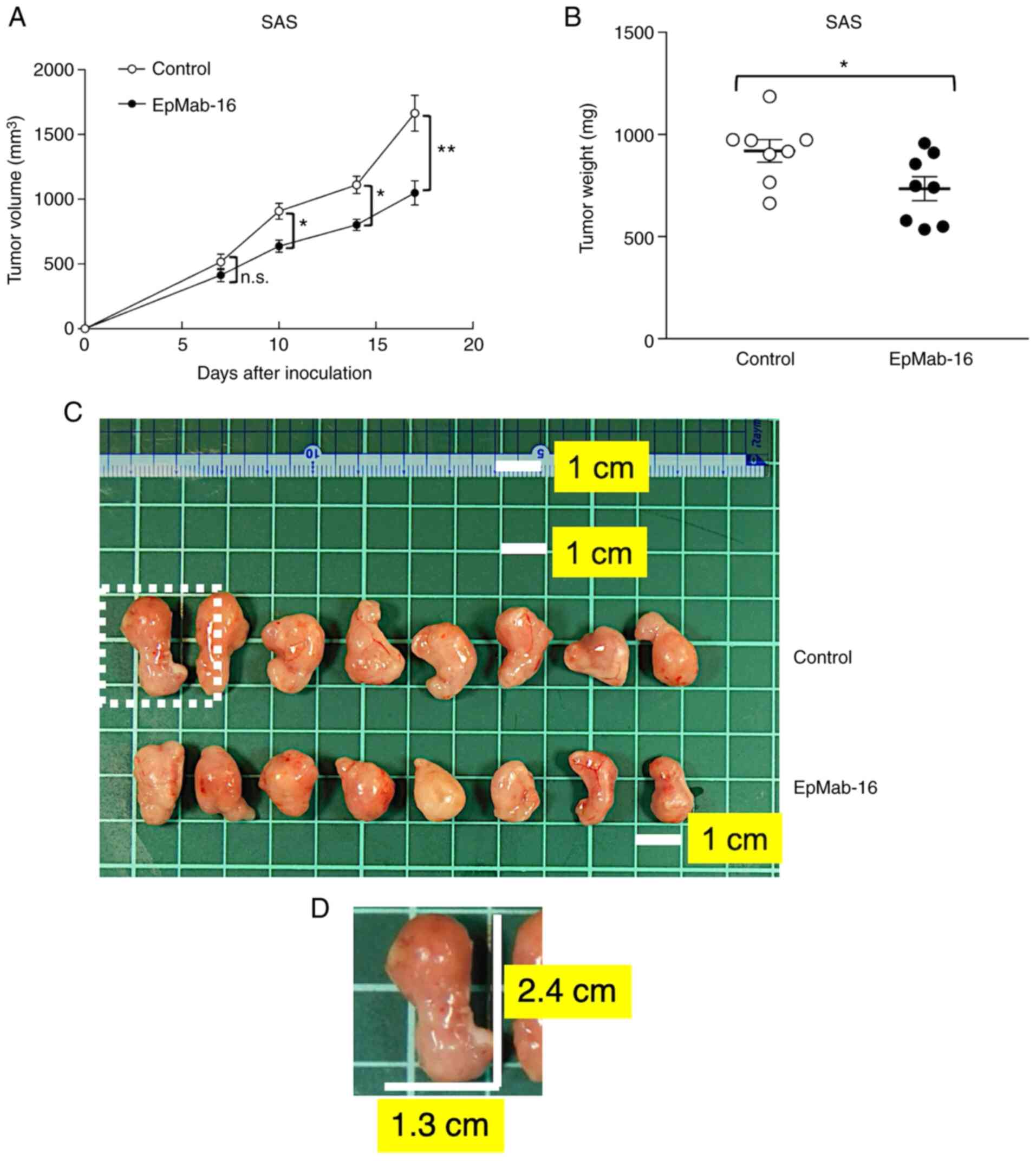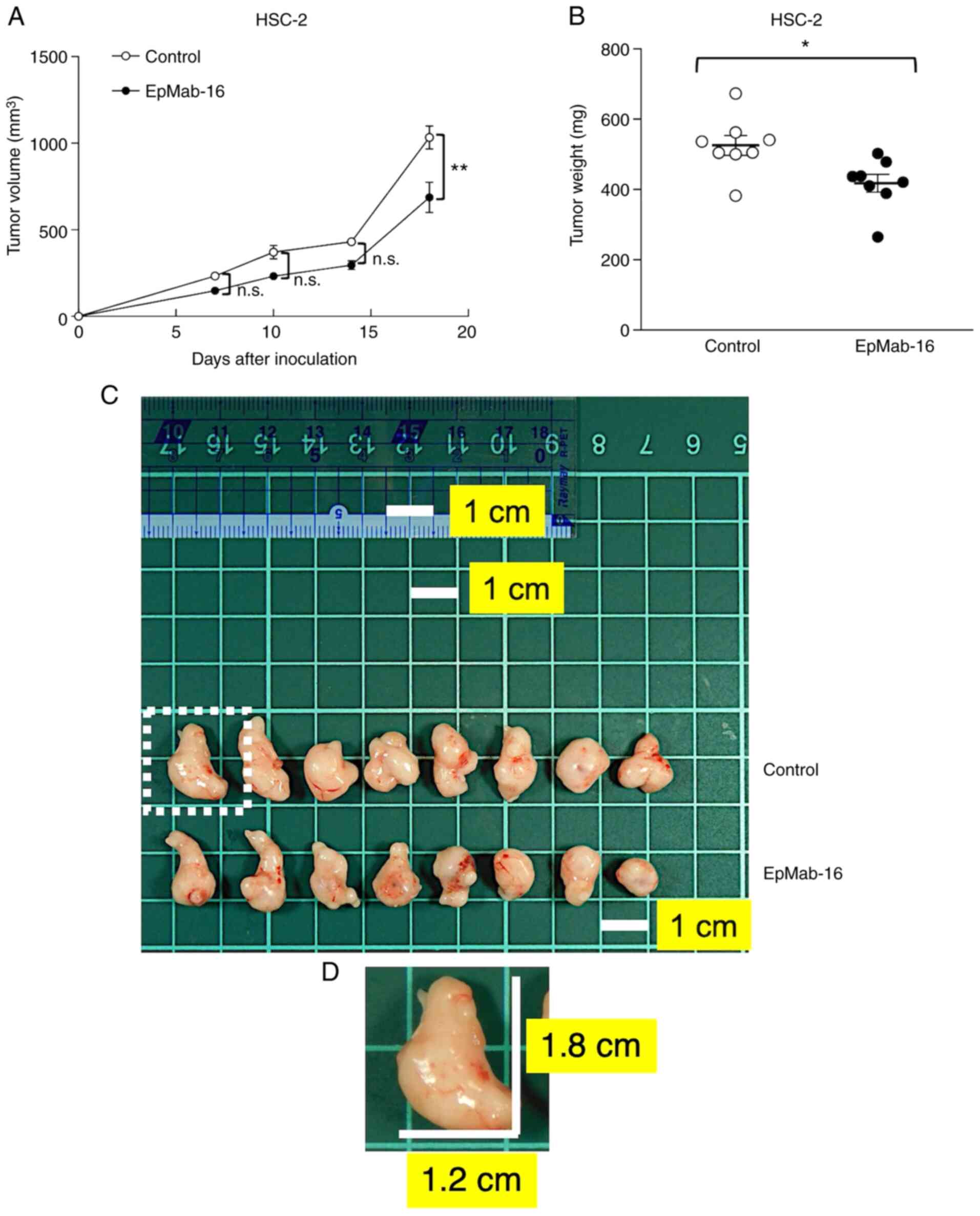|
1
|
Okegawa T, Pong RC, Li Y and Hsieh JT: The
role of cell adhesion molecule in cancer progression and its
application in cancer therapy. Acta Biochim Pol. 51:445–457. 2004.
View Article : Google Scholar : PubMed/NCBI
|
|
2
|
Petruzzelli L, Takami M and Humes HD:
Structure and function of cell adhesion molecules. Am J Med.
106:467–476. 1999. View Article : Google Scholar : PubMed/NCBI
|
|
3
|
Maheshwari G, Brown G, Lauffenburger DA,
Wells A and Griffith LG: Cell adhesion and motility depend on
nanoscale RGD clustering. J Cell Sci. 113:1677–1686.
2000.PubMed/NCBI
|
|
4
|
Trzpis M, McLaughlin PM, de Leij LM and
Harmsen MC: Epithelial cell adhesion molecule: More than a
carcinoma marker and adhesion molecule. Am J Pathol. 171:386–395.
2007. View Article : Google Scholar : PubMed/NCBI
|
|
5
|
Herlyn M, Steplewski Z, Herlyn D and
Koprowski H: Colorectal carcinoma-specific antigen: Detection by
means of monoclonal antibodies. Proc Natl Acad Sci USA.
76:1438–1442. 1979. View Article : Google Scholar : PubMed/NCBI
|
|
6
|
Imrich S, Hachmeister M and Gires O: EpCAM
and its potential role in tumor-initiating cells. Cell Adh Migr.
6:30–38. 2012. View Article : Google Scholar : PubMed/NCBI
|
|
7
|
Sen S and Carnelio S: Expression of
epithelial cell adhesion molecule (EpCAM) in oral squamous cell
carcinoma. Histopathology. 68:897–904. 2016. View Article : Google Scholar : PubMed/NCBI
|
|
8
|
Baeuerle PA and Gires O: EpCAM (CD326)
finding its role in cancer. Br J Cancer. 96:417–423. 2007.
View Article : Google Scholar : PubMed/NCBI
|
|
9
|
Went P, Vasei M, Bubendorf L, Terracciano
L, Tornillo L, Riede U, Kononen J, Simon R, Sauter G and Baeuerle
PA: Frequent high-level expression of the immunotherapeutic target
Ep-CAM in colon, stomach, prostate and lung cancers. Br J Cancer.
94:128–135. 2006. View Article : Google Scholar : PubMed/NCBI
|
|
10
|
Bray F, Ferlay J, Soerjomataram I, Siegel
RL, Torre LA and Jemal A: Global cancer statistics 2018: GLOBOCAN
estimates of incidence and mortality worldwide for 36 cancers in
185 countries. CA Cancer J Clin. 68:394–424. 2018. View Article : Google Scholar : PubMed/NCBI
|
|
11
|
Tota JE, Anderson WF, Coffey C, Califano
J, Cozen W, Ferris RL, St John M, Cohen EE and Chaturvedi AK:
Rising incidence of oral tongue cancer among white men and women in
the United States, 1973–2012. Oral Oncol. 67:146–152. 2017.
View Article : Google Scholar : PubMed/NCBI
|
|
12
|
Hussein AA, Helder MN, de Visscher JG,
Leemans CR, Braakhuis BJ, de Vet HCW and Forouzanfar T: Global
incidence of oral and oropharynx cancer in patients younger than 45
years versus older patients: A systematic review. Eur J Cancer.
82:115–127. 2017. View Article : Google Scholar : PubMed/NCBI
|
|
13
|
Rivera C: Essentials of oral cancer. Int J
Clin Exp Pathol. 8:11884–11894. 2015.PubMed/NCBI
|
|
14
|
Güneri P and Epstein JB: Late stage
diagnosis of oral cancer: Components and possible solutions. Oral
Oncol. 50:1131–1136. 2014. View Article : Google Scholar : PubMed/NCBI
|
|
15
|
Vokes EE: Induction chemotherapy for head
and neck cancer: Recent data. Oncologist. 15 (Suppl 3):S3–S7. 2010.
View Article : Google Scholar
|
|
16
|
Marcazzan S, Varoni EM, Blanco E, Lodi G
and Ferrari M: Nanomedicine, an emerging therapeutic strategy for
oral cancer therapy. Oral Oncol. 76:1–7. 2018. View Article : Google Scholar : PubMed/NCBI
|
|
17
|
Furness S, Glenny AM, Worthington HV,
Pavitt S, Oliver R, Clarkson JE, Macluskey M, Chan KK and Conway
DI: Interventions for the treatment of oral cavity and
oropharyngeal cancer: Chemotherapy. Cochrane Database of Systematic
Reviews. CD0063862011.PubMed/NCBI
|
|
18
|
Itai S, Fujii Y, Nakamura T, Chang YW,
Yanaka M, Saidoh N, Handa S, Suzuki H, Harada H, Yamada S, et al:
Establishment of CMab-43, a sensitive and specific anti-CD133
monoclonal antibody, for immunohistochemistry. Monoclon Antib
Immunodiagn Immunother. 36:231–235. 2017. View Article : Google Scholar : PubMed/NCBI
|
|
19
|
Ota T, Suzuki Y, Nishikawa T, Otsuki T,
Sugiyama T, Irie R, Wakamatsu A, Hayashi K, Sato H, Nagai K, et al:
Complete sequencing and characterization of 21,243 full-length
human cDNAs. Nat Genet. 36:40–45. 2004. View Article : Google Scholar : PubMed/NCBI
|
|
20
|
Otsuki T, Ota T, Nishikawa T, Hayashi K,
Suzuki Y, Yamamoto J, Wakamatsu A, Kimura K, Sakamoto K, Hatano N,
et al: Signal sequence and keyword trap in silico for selection of
full-length human cDNAs encoding secretion or membrane proteins
from oligo-capped cDNA libraries. DNA Res. 12:117–126. 2005.
View Article : Google Scholar : PubMed/NCBI
|
|
21
|
Kimura K, Wakamatsu A, Suzuki Y, Ota T,
Nishikawa T, Yamashita R, Yamamoto J, Sekine M, Tsuritani K,
Wakaguri H, et al: Diversification of transcriptional modulation:
Large-scale identification and characterization of putative
alternative promoters of human genes. Genome Res. 16:55–65. 2006.
View Article : Google Scholar : PubMed/NCBI
|
|
22
|
Itoh M, Yasunishi A, Imamura K,
Kanamori-Katayama M, Suzuki H, Suzuki M, Carninci P, Kawai J and
Hayashizaki Y: Constructing ORFeome resources with removable
termination codons. Biotechniques. 41:44–46, 48 passim. 2006.
View Article : Google Scholar : PubMed/NCBI
|
|
23
|
Jing Y, Zhou L, Chen J, Xu H, Sun J, Cai
M, Jiang J, Gao J and Wang H: Quantitatively mapping the assembly
pattern of EpCAM on cell membranes with peptide probes. Anal Chem.
92:1865–1873. 2020. View Article : Google Scholar : PubMed/NCBI
|
|
24
|
Vorobyeva A, Konovalova E, Xu T, Schulga
A, Altai M, Garousi J, Rinne SS, Orlova A, Tolmachev V and Deyev S:
Feasibility of imaging EpCAM expression in ovarian cancer using
radiolabeled DARPin Ec1. Int J Mol Sci. 21:33102020. View Article : Google Scholar
|
|
25
|
van den Brand D, van Lith SAM, de Jong JM,
Gorris MAJ, Palacio-Castañeda V, Couwenbergh ST, Goldman MRG,
Ebisch I, Massuger LF, Leenders WPJ, et al: EpCAM-binding DARPins
for targeted photodynamic therapy of ovarian cancer. Cancers
(Basel). 12:17622020. View Article : Google Scholar
|
|
26
|
Pandit H, Li Y, Zheng Q, Guo W, Yu Y, Li S
and Martin RCG: Carcinogenetic initiation contributed by EpCAM+
cancer cells in orthotopic HCC models of immunocompetent and
athymic mice. Oncotarget. 11:2047–2060. 2020. View Article : Google Scholar : PubMed/NCBI
|
|
27
|
Zhang D, Yang L, Liu X, Gao J, Liu T, Yan
Q and Yang X: Hypoxia modulates stem cell properties and induces
EMT through N-glycosylation of EpCAM in breast cancer cells. J Cell
Physiol. 235:3626–3633. 2020. View Article : Google Scholar : PubMed/NCBI
|
|
28
|
Itai S, Ohishi T, Kaneko MK, Yamada S, Abe
S, Nakamura T, Yanaka M, Chang YW, Ohba SI, Nishioka Y, et al:
Anti-podocalyxin antibody exerts antitumor effects via
antibody-dependent cellular cytotoxicity in mouse xenograft models
of oral squamous cell carcinoma. Oncotarget. 9:22480–22497. 2018.
View Article : Google Scholar : PubMed/NCBI
|
|
29
|
Takei J, Kaneko MK, Ohishi T, Kawada M,
Harada H and Kato Y: A novel anti-EGFR monoclonal antibody
(EMab-17) exerts antitumor activity against oral squamous cell
carcinomas via antibody-dependent cellular cytotoxicity and
complement-dependent cytotoxicity. Oncol Lett. 19:2809–2816.
2020.PubMed/NCBI
|
|
30
|
Takei J, Kaneko MK, Ohishi T, Kawada M,
Harada H and Kato Y: H(2)Mab-19, an anti-human epidermal growth
factor receptor 2 monoclonal antibody exerts antitumor activity in
mouse oral cancer xenografts. Exp Ther Med. 20:846–853. 2020.
View Article : Google Scholar : PubMed/NCBI
|
|
31
|
Kaneko MK, Nakamura T, Kunita A, Fukayama
M, Abe S, Nishioka Y, Yamada S, Yanaka M, Saidoh N, Yoshida K, et
al: ChLpMab-23: Cancer-specific human-mouse chimeric
anti-podoplanin antibody exhibits antitumor activity via
antibody-dependent cellular cytotoxicity. Monoclon Antib
Immunodiagn Immunother. 36:104–112. 2017. View Article : Google Scholar : PubMed/NCBI
|















